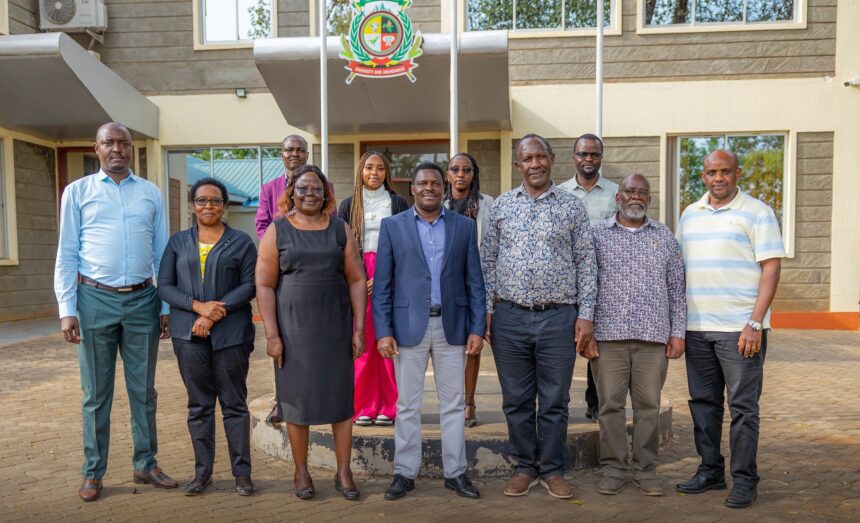Tharaka Nithi County has made significant strides in education by investing in the foundation of early childhood learning, aiming to enhance the learning experiences of children in public schools.
In a notable initiative, the county government launched a Randomized Controlled Trial to assess the effects of pre-school interventions on child learning and women’s economic empowerment. This trial involved recruiting 60 Early Childhood Development Education (ECDE) teachers across 60 schools to adopt 3-year-old children into pre-school programs. This initiative is part of an effort to advance early childhood education research and inform policy decisions.
Tharaka Nithi Governor Muthomi Njuki, while hosting a delegation from Kenyatta University at the County Headquarters in Kathwana, highlighted the county’s suitability for this experiment. This decision was influenced by the construction of a crèche at Chuka market, addressing the needs of mothers who leave their businesses to care for their young children.
“Kenyatta University, in collaboration with the Government of Kenya, University of West Indies, and Yale University, supported by the Melinda and Bill Gates Foundation, decided to conduct this experiment. It aims to find practical solutions for mothers with children under 3 years who cannot afford childcare and are not yet of school-going age,” Governor Njuki explained.
The program selected 120 schools, dividing them into 60 control schools and 60 experimental schools. The latter received educational materials and qualified teachers to enhance early childhood learning.
“We enrolled 3-year-old children to see if they could learn like older students, which also allows their mothers to engage in business activities. The ongoing assessment will inform us of the program’s success, and we are pleased with the progress so far,” Njuki added.
Prof. Judith Waudo, Lead of the Kenyatta University Women Economic Empowerment Hub, stated that the program involved developing a special curriculum, lesson plans, and a child protection policy. All materials for the 60 schools were produced by local Jua Kali enterprises within Tharaka Nithi County. The experiment also includes 15 mentors, four research assistants for measurements, and an observation lead.
“We plan to recruit another cohort in December to compare performance and monitor the program’s progress. Our ultimate goal is to empower women economically and scale up the project in Tharaka Nithi and other interested regions,” Prof. Waudo mentioned.
Prof. James Biu Kung’u, Deputy Vice Chancellor in charge of Academics at Kenyatta University, emphasized the county government’s commitment to ensuring the project’s success by providing necessary resources.
Dr. Tarja Francis, representing the University of West Indies, praised the positive feedback from participating schools and acknowledged the dedication of the field team. The project now aims to ensure a smooth transition for children from PP1 to PP2 and aspires to scale up across Africa.









